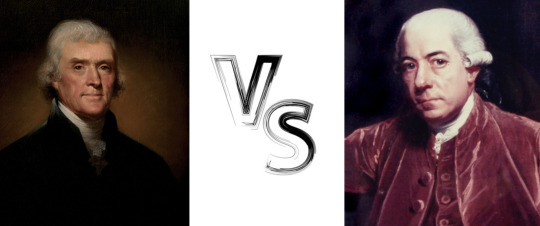#one of the first great compromises in American history
Explore tagged Tumblr posts
Text
Saturday Soliloquy: Politics
The day is half over, and I’m just now getting around to my Saturday post. Let me say at the outset that this post is NOT for or against any candidate. It’s about some principles I believe we have lost, or are losing, because of constant misrepresentation in the media. First, we hear constantly that we are a democracy. Defined, a democracy is a state run by the people. Every vote counts, every…
#alanarcy leads to dictatorship and martial law#bicameral legislation#defining a republic#defining democracy#looking at our history#not about candidates#one of the first great compromises in American history#Politics#proble was that the most heavily populated states would always win#pure democracy leads to anarcy#Saturday Soliloquy#successful at first
0 notes
Text
Like We Were In Paris
kwon ji-yong x american pop star!reader

summary: you and ji-yong have been dating for a couple years, keeping it under the radar the entire time. you’re both invited to the gala de pièces juanes 2025, and it’s the first time you get to see him perform live
warnings: not proofread at all, celeb!reader, implied age gap (reader is like…mid twenties?), whole lot of fluff, basically ji-yong being a simp, taeyang & rosé being captains of the ship, use of y/n, i don’t use tumblr so bare with me while i figure this out. i tried to keep descriptions of the readers outfit vague so you could imagine it to your liking!
word count: 4.1K
nat’s notes: hey y’all! i was convinced into writing a g-dragon fic (by like 3 people). i’m kinda obsessed with this. i had so many ideas while writing it & so im kind of tempted to write more of these two, but i don’t know!! this is my first like… irl person x reader (ive only written one other fic on here lmao) & i am new to g-dragon, bigbang, all that so i kept it pretty current. to me these two are very dancing with our hands tied by taylor swift coded (or just reputation coded), i cant explain why it just makes sense. the divider right below is from enchanthings here on tumblr, and the other one later on….idk its for my wattpad LMAO. anyways i hope you enjoy, and im sorry in advance if you hate it. toodles!

You still remember the first time you met Ji-yong.
You were in need of some inspiration. Working on your fourth album, the intense gaze of your record label, your management, your fans, and your musically gifted peers was crushing you. It seemed to do more harm than good. For weeks, you stared at notebooks and computers and instruments. Your manager tried to get you with various song writers. Nothing worked. So, after some persuasion from your best friend (who knew you better than anyone, having been your best friend since you were kids), you decided to do a vacation. Just you and some required security (per compromise with your team). You decided to go to Seoul, having loved it in the few times you’ve passed through on a tour. The fans there were great; always warm and welcoming and always one of your loudest shows. The culture was breathtaking. It felt like the perfect opportunity.
Your team had found a studio for you to work in. You were only there for a few weeks, but they wanted some hope that you’d come back to America with something. It was week two when you met him. You were walking towards your studio, he was walking out of his. The two of you made eye contact, and you were instantly swarmed with warmth. You didn’t believe in love at first sight (neither did he, to be fair), but you started to question it as you walked past him.
From then on, each of you seemed nosy about the other. He asked his friends who the girl was in the other studio. “Oh! The American! That’s Y/N,” He recognized your name, and now your face. He hadn’t seen you outside of a red carpet or a concert venue photo, so he didn’t recognize you with little-to-no makeup and comfortable clothes. But once it clicked, it clicked. You had asked someone working at the studio about him. They mentioned his name, Kwon Ji-Yong, and you googled him that night in your rental house.
You knew about G-Dragon, the impact he had on K-Pop and the music industry. You had heard a song here and there, but you had never seen him. Not til that day in the studio.
It was a few days until you saw him again. Your schedules just missing each other. Then, one day, your producer was running freakishly late to your meeting time, and Ji-yong was walking out of his own studio. You stood there, more like paced there, tapping wildly on your phone trying to get in contact with your producer, whispering to yourself in frustration.
Ji-yong had the courage to speak up, say hello, and the rest is history. Stories for another time, maybe.
Your friendship eventually blossomed into a relationship, defying all cliches of long distance and the terrors that often comes with it. It helped that he was on hiatus and you had became a professional of staying out of the public eye. You both wanted to keep what you had to yourself. Your teams did, too, but they got less strict as two months eventually became two years. It was on your terms now, when you'd let everyone know about your status, but neither of you had felt ready to let the world in on something so…yours. So peaceful, so effortless, so pure. It was easy, the two of you traveling between South Korea and America to spend time together, or going on vacations together, or just taking quiet retreats into each others homes.
Nobody ever thought of it, either. There was no reason to. Unless they’d been in the studio that day, the media had no way to expect any crossover of America’s Princess and the King of K-Pop. The media would rather gossip about you in relationships with the usual Hollywood celebrities, some of whom were just friends, some you’d never met. Neither of you mind rumors, it kept the media out of your relationship and sometimes they were hilariously ridiculous. So, you let the press talk their talk. You and Ji-yong kept to yourselves, careful on your information you’d share with friends (it was easy for things to be leaked, these days).
When Ji-yong told you he was officially making his comeback to the industry, you were ecstatic for him. You knew how much he loved making music and performing. You also knew, though he’d never admit it, sometimes when he’d sneak to join you on tour, he got a bit jealous watching you sing and dance on stage. He’d watched you collab with numerous artists, tasting just about every genre you could before eventually finding your new sound. It made him sad, some nights, missing that glow you often had instead. But most nights? Most nights he was beaming from behind the stage, watching you do what you loved most. Most people sink in this world, but you? You swam, no, you effortlessly floated in the sea of fame. And it was obvious to anyone around you. Part of what he loved most about you was your creative drive, something he shared. It inspired him, more than you’d ever know.
Ji-yong's comeback had been more than successful, as expected. Throughout your relationship, the two of you had fumbled with varying songs and styles for each other. Oftentimes more playful than not. You guys fueled each other in the best ways. You released your newest album in 2024, and you were about to start your world tour in the early months of 2025. Ji-yong would follow suit, his first solo album in years coming out soon and then starting his own tour.
Both of you were wracked with nerves, spending days in rehearsals, wardrobe tests, photo shoots, traveling all over for various projects. It had been weeks since you’d seen each other. After the holidays you were swimming in press for your new tour. He had been equally busy, filming his show, performing at various shows. You both loved it. You loved your jobs and you loved each others jobs. But even you two would struggle on the days where it’d been long, exhausting, and mentally draining; wanting nothing more than each other’s warmth.
The Gala des Pièces Jaunes, a show that helps collect donations for charity in Paris, had invited both of you to perform, along with other various stars. Little did they know, they had invited the world's most popular secret couple. You had been ecstatic. Not only did you love the message the event had, but you loved the idea of sharing the stage with so many extremely talented artists. Including, your boyfriend.
The night before the show, you had inconspicuously snuck your way towards Ji-yong’s room. You had wanted to get a hotel room together, but knew that you had to be careful with the amount of eyes on both of you this weekend. Still, that didn’t stop you from wondering around until you ended up at his door. With your special knock– each knock a syllable in your names –you waited patiently for him to open up the door to you. His eyes were sparkly, even in the shitty lighting. They always seemed to do that with you.
“Finally,” He breathed, pulling you into the room quickly. You giggled as he used your body to shut the door, his arms around you tightly. You had seen each other, earlier in the day during rehearsals. Pretending like it was your first time meeting him and Taeyang was hell. Pretending you didn’t know their names, pretending Ji-yong didn’t pick out your outfit on FaceTime, and pretending you didn’t want to latch on to him and never let go.
The only people who knew about you two were Young-bae, of course. He and Daesung had known about you for a while now, teasing their friend and bandmate for not telling them right away. The other person was Rosé, who’d been your friend for years and one of your closest friends in the celebrity world, both of you having blown up in popularity around the same time. Both of them seemed equally amused, watching you and Ji-yong try to act nonchalant around the other. Young-bae chuckling as Ji-yong watched your rehearsals in a stunned silence. He knew every song of yours by heart (even the ones from before he met you), and even when trying to act like he didn’t he could feel himself mouthing the words as he watched you and your dancers on the stage. Rosé would wink at you when she’d walk past you, and everytime you almost missed it cause you were too busy watching Ji-yong talking with his team.
But now, the two of you didn’t have to act. You couldn’t stop laughing in awe, Ji-yong smothering your face in feather-light kisses. You held on to him, your face turning pink as he continued his full-blown kiss attack. “I missed you, jagiya, so much.” He muttered against your skin. Finally, he pulled back to look over your face, pressing another kiss to your lips. You melted into his arms, your mind momentarily fuzzy. There was nothing else but him. His hands on your waist, his shirt clutched in your hands, his scent that had became your favorite. Him. Him. Him. It was always him.
“I missed you more,” You whispered, running your fingers through his minty-colored hair. He closed his eyes softly, as if soaking in your touch. Your heart swelled, as it always seemed to do with him. You had never felt this way, not in any of your previous relationships. You had been positive for a while now, Ji-yong was it for you. “Are you excited?” You asked him, tilting your head in curiosity.
He slowly opened his eyes, meeting your soft expression. He loved how you looked at him. It was something you couldn’t hide, not even at rehearsals. He sighed, pulling you by your hand further into the hotel room. “Yes. Nervous, too.” He added. You nod in understanding, he had only performed a few times since the comeback. He loved it after, always, but the nerves had been hard to shake off, even still.
“I’m excited to see you,” You beam, still keeping your fingers interlocked. You hadn’t seen him live, not yet. You had been back in America finishing up your album and starting a press tour at the time, but you always called him right before he went on to give him a final good luck, and you always snuck onto a live stream to watch.
He rolled his eyes shyly, leaning his head into your neck. “Young-bae is going to make so much fun of me.”
“Why?”
“Cause I’m more nervous for you to see my performance than I was at MAMA.”
You laughed at that, bringing his face into your hands and looking at him. “You’re going to be amazing. More than amazing. You’re going to be perfect.” You reassure him, leaning in to kiss his lips softly. “And I am not afraid to bully Young-bae,” He laughed at this, throwing his head back slightly. He knew it was true, your friendship with Taeyang almost too sibling-like, to the point you two teased each other about everything.
“Are you nervous at all?” He asks you, looking over your expression, as if he’s trying to find your answer in your gaze. He did this a lot, knowing you for so long he began to pick up on things, even before you did.
“I am, but only a little,” You decide finally. It was a short set, only a few songs to perform. You had picked your most popular hits and your newest single for the setlist. And your outfit was your favorite part, matching your dancers whilst still making sure you stood out and felt confident. “Oh! I have to tell you about this thing I saw.” You pulled out of his arms, suddenly distracted by something you wanted to tell him about when you were in your room.
Ji-yong watched you quietly. His eyes filled with a lightness and admiration. He listened to you talk as you grabbed a water, waving your arms wildly to dramatize the story. He smiled, leaning against the couch in his room as he thought about how much he loved you. He loved everything about you. From the way you talked about your passions to the way you scrunched your face when you ate something you didn’t like. He loved the way you danced in the car when your favorite song came on. He loved the way you loved the people around you. He loved the way you waltzed into his heart like it was your home, and wrapped your arms around him like you were his home. You are his home, he’s sure of that. Even now, as you ramble into near nonsense about something he has no understanding of. He still watched you like you had been the most beautiful work of art he’d discovered. He was certain that was true.

Le Gala des Pièces was in full swing. Everything was going well, perfect, all of it. And you were backstage, getting your makeup touched up as you saw someone walk past your open door. You recognized him instantly, you always did. And part of you couldn’t let him go on stage without a final goodbye. “I’ll be right back!” You pushed yourself out of your chair, rushing after him. You could see him walking through the hall, too busy with his own thoughts to notice you coming to grab his wrist.
Ji-yong felt your touch, his head moving so fast he swore he heard a crack. His eyes met yours instantly, then looked you over in surprise. He hadn’t seen your outfit yet. It complimented his, something he wasn’t sure if you had done on purpose or not. A black and red outfit, the red the exact same shade as his tie. As he looked you over, you could see the different emotions flicker on his face. Admiration, lust, maybe hunger, and love. He looked up at your face again, smiling, “Hi, Y/N,” His name feels unfamiliar on his tongue, now. Over the years, nicknames had become your normal. Another thing to add to the list of things you hated about pretending you didn’t know him.
Your mouth hung open for a moment as you looked at him. You hadn’t been sure if you’d see him before he went on, so you hadn’t exactly planned your choice of words. “I wanted to wish you luck,” You stuttered out, suddenly aware of how many eyes could be on the two of you.
Ji-yong’s eyes were laced with amusement, seeing your cheeks turned pink. “I have to grab something to drink, come with me?” He asked, playing it as cool and casual as humanly possible. You itched to reach for his hand, but kept to yourself as you followed him.
As soon as you were in a dark corner, away from prying eyes, he was on you. The two of you pressed your lips together like perfect puzzle pieces. Your hands roamed his chest as his roamed your waist. You hummed happily, wishing this moment with him would never end. Adrenaline, nerves, excitement all were running high. From the show, from being around each other, from sneaking around. You felt his hands squeeze your hips, the two of you forcing yourselves to pull away. You smiled up at him, almost dizzy from him simply being in front of you. “Good luck,” You beamed.
“Is that how you wish everybody good luck?” He asks playfully. You rolled your eyes, smacking his chest as you adjusted yourselves. “I’ll see you as soon as I’m done,” He leans to kiss you again, “I love you,”
“I love you more,” You winked as he sauntered off towards where his team was waiting for him. You stayed back a moment, blushing wildly and hopping in place happily before rushing back to your own people.
You watched from backstage, wrapping yourself in a black robe to hide yourself as much as you could from the crew around you. You had passed Taeyang, who gave you a subtle handshake as he passed by for his cue. You watched in awe, seeing Ji-yong, no, G-Dragon on that stage. Seeing him do it all in person…it was ethereal. The way he moved through the stage and carried himself with this aura. He was almost mesmerizing, distracting you from the chaos backstage and your own nerves. It didn’t shock you, you’d known forever how talented he was. You’d seen videos of him from before you met, you’d seen him work for hours upon hours in studios, and you’d seen him on set for his music videos. But this was different. This was really him. This was what he was born to do, if destiny and fate were real. This was exactly that.
“Hey, pretty,” You turned your head to Rosé, Rosie, who only smiled knowingly. She linked her arm with yours, leaning into you. “You happy?”
“Happiest,” You answered, “He’s so good.”
“He is.” Rosie agreed. She giggled at your face. The two of you had met years ago, you had blown up in the music scene shortly after Blackpink. The two of you crossed paths at an event, not knowing anyone else there, and you two stuck by each others sides much like you were now. You two had been closest friends. When you told her about your first date with Ji-yong, she was ecstatic. She knew Ji-yong, and she knew that he’d be good to you. She wanted you to be happy, and that's what you were. Always when it came to Ji-yong, you were the happiest person she'd seen.
You watched the rest of his set. You smiled giddily as he and Taeyang performed together. You bit your thumb nail as you watched him move around the stage in the second outfit with the sparkling black jacket. Rosie nudging you every time she noticed you blush.
When he was off the stage, he had found you waiting for him amidst the crowd of people. He smiled happily, reaching you without much thought about anyone else. His arms swooped you in, hugging you tightly. You laughed, hugging him back. “That was amazing!” You beamed. For a moment, the two of you forgot where you were. Forgetting the curious eyes who thought you barely knew each other. When your senses kicked in, he was quick to put you back at a friendly distance. Your gaze moved to Taeyang, “You guys are phenomenal!” You hugged Young-bae too, hoping that if you acted friendly with everyone it wouldn’t cause more suspicion. “Thank you,” Ji-yong muttered, suddenly shy again. He bowed quickly at you, trying to play it off. In moments, you were hearing your name called, and his own team was surrounding him. You smiled warmly, disappearing in the crowd of crew and stars.
Ji-yong wanted to keep close to you. He wanted to wrap you up in his arms until the very moment you were on stage, but that was impossible. You were back in your greenroom, getting makeup and hair touched up, and then you were taking photos with crew members and doing more vocal warm ups. You were being whisked around every which way. He and Young-bae were staying close together, feeling the most comfortable with each other as they simply watched the show continue.
Young-bae was smiling to himself. He had been so happy for Ji-yong when he introduced you to him and Daesung. It was blatantly obvious to see how happy you made him. You made Ji-yong smile at every moment, you'd giggle at his jokes (even if Young-bae didn't think they were that funny), you would help him if you noticed his hesitation. You encouraged him. You built him up. You even started secretly learning Korean, calling Young-bae for help every now and again. The next time you visited Ji-yong, you had managed to say your first sentence in Korean, and it was actually good. You were this ray of sunshine. Anyone who knew the two of you knew that. He was honored to be in on your guys’s little secret. Otherwise, he’d feel cheated out of watching two people he cared about falling in love.
Unfortunately, Ji-yong didn’t get a chance to see you before you were whisked away under the stage to make your entrance. Still, he watched quietly from backstage. He clasped his hands together, watching the crowd scream with anticipation as your intro started. Fog began to cover the stage, the lights flashing every which way with the music. Your dancers surrounded the area you’d rise from. Once you did, you immediately went into the first song, dancing on every note. The crowd was wild. Ji-yong smiled proudly. On stage you were someone else entirely. You were confident, you moved with ease and exact precision. Your body moved with your dancers, most you’ve known for years. Their hands grazing your hips as you all moved together in sync. Ji-yong never got jealous, knowing how these things worked. He was no stranger to any of it.
He’d seen you perform, maybe a hundred times now, and yet it never got old. As the song transitioned to another popular track, the crowd somehow getting even louder, he thought about how you might’ve looked earlier. Standing in the same spot, only a short time ago. He could only assume you looked much like he did now. Body swaying to the familiar music, mouthing the words, eyes sparkling at him like he had hung the moon and the stars only for you. He wasn’t sure what he did to get so lucky.
He clapped as the crowd did. You were at the far end of the stage now, dancing with another male dancer to the third song. The song had been written for him, though not many people knew that other than you and him. A romantically charged song. It was one of his favorites. He remembered the day you showed it to him, all shy and quiet, which was unusual for you. You had told him you had a song to show him, wanting to release it as a single in the future. When you played it, you only stared at his face while he stared at the computer screen. He considered marrying you right there.
As you performed your fourth and final song, he found his way to where you’d end up off stage. He played with his sleeves, smiling shyly as people greeted him as they passed by. He wanted to see you. No, he needed to see you.
And he did. You came off the stage, glistening from glitter and sweat. You hugged your dancers and thanked them, high-fiving other members of your crew. As your eyes met his, he could see them light up. But you stayed put, not wanting to make another scene. He winked at you, moving in the direction of your greenroom.
It took you a couple minutes to get your micpack off and head towards your dressing room to change. Once you did, you smiled wide at the man waiting inside. “We did it!” You beamed as you jumped at him. He caught you easily, swinging you loosely in his arms as you pressed your lips against his. It wasn’t rushed or adrenaline-filled like before. This was softer, still full of energy, but only relief, love, and pure joy. “We fucking nailed it, baby,” You said as you looked up at him. He swore he might die from the way you love him.
“You were beautiful,” He hummed, leaning into your hair. He hummed, squeezing you tighter. “I love you. So fucking much.”
You closed your eyes, taking in the moment as best as you could. There was no place on this planet you loved more than being in his embrace. You could be anywhere, at any time, anything could be happening, and all you’d want is him. That’s all you’d ever need, The lazy mornings in your LA home where you’d surprise him with breakfast in bed. The romantic nights in Seoul where he’d take you out to dinner at your favorite place. The bustling mornings when one of you had a meeting to get to. One of you having a mouth full of toast trying to run out the door, only to scramble back to give the other a kiss. Late nights in studios, falling asleep in random spots as you tried to come up with new lyrics and beats. Your favorites were the quiet nights, the two of you tangled in bed sheets as he stared at each other, talking about whatever came to mind as one of you played with the others hair, or traced shapes on bare skin. Gentle kisses passed back and forth. Life was perfect, and he was perfect.
“I love you, Ji,” You whispered, kissing him again. He hummed into it, smiling. You looked him over appreciatively, fiddling with his outfit. “I need to change, wanna pick my outfit out for me?” You asked, raising a brow. His eyes flicked with mischief as he looked back at the rack of clothes you had. He looked back at you, pulling you back into him again.
#kwon jiyong x reader#gdragon x reader#kwon jiyong#gdragon#bigbang x reader#gdragon fanfic#kwon jiyong fanfic#fanfic#x reader#kpop fluff
406 notes
·
View notes
Note
Aita for lieing about my country of origin?
🇨🇦🥶 <- so I know it's me!
This is kinda stupid but a friend said it will start a bad habit of lieing, I'm taking advantage of the fact that because I'm white passing I don't get offensive immigrant questions and I just shouldn't have so let's see.
About a year ago I (24nb metis aka white and first nations canadian. Also native American but it's blurry. Its important later.) and my partner (24f white) went to walmart for groceries. I love the cold, have been raised in the cold temps of the Midwest my whole life and I have a autoimmune disorder which makes me much warmer than everyone else so despite it being 32° outside, I was in shorts and a t-shirt. My partner thinks I'm crazy and I have a bad habit of freezing her out but we compromise.
Obviously wearing a T-shirt and shorts when it's snowing outside gets some attention and this elderly white couple playfully asked how I wasn't frozen solid as some sweet small talk but I'm socially anxious and just blurted out that I was from Canada and this was nothing. They just laughed in surprise and nodded and went on. That was a lie and my partner playfully chided me for it. No, I'm not a Canadian immigrant and I was born in America but as you can see, my family has deep ties to Canada and my grandmother is a Canadian immigrant. Should I of lied? No but it was harmless, I panicked and I didnt want to explain a disorder or get too deep into conversation with strangers so I just said it and moved on. No harm done.
Flash forward to today where I, my partner and a mutual friend (23 ftm, white but reconnecting to his distant Cuban and carribean heritage. He identifies as "spicy white".) were talking in a group call about our families histories. One side of my friends family immigrated to America about 4+5 generations back from Cuba with the other from Scotland and Ireland and my partners family history is blurry but she knows they came from Scotland and Germany. My partner playfully brought up my lie from a year ago and the whole tone shifted. My friend got mad at me and brought up how his great great grandmother struggled in America because she wasn't white passing, she immigrated from a non-white country and people treated her horribly. I tried to bring up that both my grandmothers were natives and my immigrant grandmother also struggled with racism due to being first nations but he kept interrupting me saying that because I'm white passing and I picked Canada as a place I fake-immigrated from, I'm taking advantage of the fact that white old couple would treat me better than Mexican immigrants or middle Eastern immigrants.
Eventually the call ended and we side stepped the topic but tension is still present and I don't know how to feel now. Obviously I respect immigrants and i have a high amount of immigrant people in my family, not just Canadian/first nations but married in from Poland and Mexico. I know I shouldn't of lied but I feel like my friend is just being a bit chronically online right now and acting like I don't respect any immigrants. Ever since he started reconnecting, he's gotten more and more trigger happy with racist jokes, calling people racist for no reason and just all around... off. I totally get generational trauma and the pain of discovering your history around colonization and genocide but its getting weird. My partner says she didn't see the harm in my little, no pun intended, white lie but doesn't wanna be involved because she's white and this issue has some racist undertones. I don't know if this is just a symptom of his discovery surrounding himself and being in some very overly sensitive groups or I was truely being insensitive to even being passively racist towards other POC.
So, was I the asshole for lieing to some strangers that I'm from Canada just to not have to get too deep into why I wanna wear shorts in the snow like a weirdo?
What are these acronyms?
101 notes
·
View notes
Text
Debate thoughts and quickie analysis!
The main reason Democrat and Republican debates have been historically frustrating is because it's always: Step 1: Republican makes outlandish, false claim about democrats or immigrants or what have you! Step 2: The Democrat responds with, "well no, actually, um" and doesn't actually face or address how INSANE Republican statements are in the first place. Step 3: The Republican, having already won, sneers the whole time and controls the conversation. This has been the case for 90% of recent american history. I am glad to see that that is NOT the case anymore. Kamala is actually doing really good, AND the moderators were on point, too. Like, for example, actually asking critical questions to both, and providing fact checks when Trump says that immigrants are EATING YOUR PETS, Substantiating that they already talked to the mayor of Springfield, Ohio and that there is absolutely no evidence found of something that- lets face it- is just one person's brain worms. It spread from one person's probably ill mind, and became a MAJOR REPUBLICAN POINT! It's that easy. And now it's completely gone because of course it is, its a total fabrication and in 2024 those don't fly anymore because we don't live in ignorance of Trump's strategies anymore. This whole thing just shows how desperate, vile and awful they are, that this is ALL they have after all. Honestly though, just seeing the people making bullshit up on the defensive is great! So I enjoyed the debate a lot. That being said, I want to talk about the fact that I was also pleasantly surprised. I expected it to be more 50/50, truth be told. I do think Kamala, like any other Dem, has a little bit of liberal syndrome - which is pretty standard for Democrats, it's just their bread and butter weakness, but she's definitely the best in that regard - which is why she's actually doing well! What do I mean by that? Well, it's simple. Democrats make this mistake of thinking that they're as equally left as Republicans are right - which is only a little bit, in this theory - and we can unite as a people, if we just try. Meanwhile, the reality of the situation is that the Democrats live in the real world, where people matter and policies affect them, while to be completely honest, Republicans live in the AI power fantasy where the Shadow Qabbal Border Tzar Trans Alien Prison Immigrants from Mexico are killing every aspect of the american dream you love and schools are where your Children transition by Force, you can trademark half of those buzzwords if you want. And you damn well know that if it were convenient for them, they'd include Jews in that, too. The point is, that is fundamentally not something you can compromise with. Because to compromise with something, it has to like, already exist in REALITY, right? And their ideas just don't. To summarize I guess, the main mistake Dems make is that they believe they'll get more of the Republican voter base if they move right slightly. BUT THAT NEVER WORKS!!! Because, the people voting for trump are ALL cultists, who are stuck up their own ass about emotional messaging and DO NOT care for empiricism, DO NOT care for results or outcomes, all they care about is being right that trump is their american savior. After all, as soon as Trump lost in 2020- a verifiable fact with NO room for empirical debate without changing the meaning of the word "lose", a shitstorm of false accusations about the election being stolen happened, the Capitol riot happened, not to mention even that Trump keeps promising that if he gets elected, nobody will have to vote again. Like - come on, it's so transparently fascism, to the point where even the most irrationally opposed to the term have to see it. You cannot reason or compromise with people like that, it's just not possible. Kamala has been better about this than all democrats up to her, easily, but she's still not perfect. And I hope this is completely understood by democrats going forward, if the Republican enstablishment doesn't change it's ways.
21 notes
·
View notes
Text
history details from vampire show i am thinking about
they changed louis' family business from indigo to sugar; i assume this is because synthetic indigo was available from the 1880s on, so the market for natural indigo crashed badly, but they wanted to preserve both louis' affluence & his family connection to the cash crops of the louisiana plantation. they could've gone with rice, i guess? but that doesn't have the same evocativeness, i think. like everyone heard that line ("capital accrued from plantations of sugar and the blood of men who looked like my great grandfather but did not have his standing") & had an instant image, right? rice doesn't have the same legacy, although it could've been interesting (started as a more incidental crop, then became a major commercial product in the latter 19th c.; actually, rice became a commercial crop after railroad construction in 1882, the same year indigo dye was synthesized)
i have probably said this before but i like that louis works in, loosely, the vice business; it leaves him with some interesting moral problems, i think. i hate the way that he talks about the enslaved people in his household (& elsewhere) in the books; i hate the terrible line in the '94 movie where he's burning down the plantation house & telling the group of enslaved people gathered at the doors that they're free (oh! will that do anything! well! no worries as long as you & by extension we don't have to feel bad about it!); but there are parts of that relationship to other people, as a business proprietor with immense control over their working conditions, that have to do with the compromises he ends up making about his own capacity for violence & predation. mostly this bullet point is about how much i hate that line in the movie, though
the shot on the street in front of his paris apartment with armand, where they kiss for the first time & there's a sign behind them for 'le dakar.' i have googled around for this & turned up nothing, so it is at least probably not a famous landmark? i might be stupid? but dakar is the capital of senegal, & one of its districts is the île de gorée, one of the most famous departure ports for the middle passage (this legacy was plausibly exaggerated for tourism reasons, per wikipedia? apparently sparked after the tv show roots, so probably familiar to american audiences? there is an internationally famous memorial to the victims of slavery there). there's a resonance there about journeys, departures, agency, memory; it's a lovely, well-lit scene. i'm not making a claim in particular & of course there are lots of other things that happened & are happening in dakar, i just thought about it
delighted by louis' delight in the modern, particularly photography. still gnawing on this one. but if we want to be nice, it's something he might share with lestat ("siri pause" lol) or something that armand enjoys (being rooted in the present, right). it's also a neat little reflection on artistic arguments about truth; probably there's something going on with the style of theater in the théâtre too? i don't know anything about postwar french theater but that sounds like it might be true? but anyway here we are, is a photograph art, is a photograph true; is this interview an admitted performance, is this interview true. especially after louis got caught in a lie in romania because of his albumen photograph. layers, we love them
6 notes
·
View notes
Text
THE GRAND FINALE WHO IS THE TRULY THE WORST FOUNDING FATHER?
THOMAS JEFFERSON VS HENRY LAURENS

Thomas Jefferson (April 13, 1743 – July 4, 1826) was an American statesman, diplomat, lawyer, architect, and philosopher who served as the third president of the United States from 1801 to 1809. Following the American Revolutionary War and prior to becoming the nation’s third president in 1801, Jefferson was the first United States secretary of state under George Washington and the nation’s second vice president under John Adams.
Starting in 1803, he promoted a western expansionist policy with the Louisiana Purchase and began the process of Indian tribal removal from the newly acquired territory.
Jefferson lived in a planter economy largely dependent upon slavery, and used slave labor for his household, plantation, and workshops. Over his lifetime he owned about 600 slaves.
During his presidency, Jefferson allowed the diffusion of slavery into the Louisiana Territory hoping to prevent slave uprisings in Virginia and to prevent South Carolina secession. In 1804, in a compromise on the slavery issue, Jefferson and Congress banned domestic slave trafficking for one year into the Louisiana Territory.
In 1819, Jefferson strongly opposed a Missouri statehood application amendment that banned domestic slave importation and freed slaves at the age of 25 on grounds it would destroy the union.
Jefferson never freed most of his slaves, and he remained silent on the issue while he was president.
Since the 1790s, Jefferson was rumored to have had children by his sister-in-law and slave Sally Hemings, known as the Jefferson-Hemings controversy. According to scholarly consensus…as well as oral history, Jefferson probably fathered at least six children with Hemings.
---
Henry Laurens (March 6, 1724 [O.S. February 24, 1723] – December 8, 1792) was an American Founding Father, merchant, slave trader, and rice planter from South Carolina who became a political leader during the Revolutionary War. A delegate to the Second Continental Congress, Laurens succeeded John Hancock as its president. He was a signatory to the Articles of Confederation and, as president, presided over its passage.
Laurens had earned great wealth as a partner in the largest slave-trading house in North America, Austin and Laurens. In the 1750s alone, this Charleston firm oversaw the sale of more than 8,000 enslaved Africans.
Laurens’ oldest son, Colonel John Laurens, was killed in 1782 in the Battle of the Combahee River, as one of the last casualties of the Revolutionary War. He had supported enlisting and freeing slaves for the war effort and suggested to his father that he begin with the 40 he stood to inherit. He had urged his father to free the family’s slaves, but although conflicted, Henry Laurens never manumitted his 260 slaves.
---
By popular vote, this final round will run for one full week
Please reblog so we can get the biggest sample size possible and figure who is TRULY the worst
#founding father bracket#worst founding father#founding fathers#amrev#brackets#polls#thomas jefferson#henry laurens#FINAL ROUND#the fact that i have books about both of these men on my bookshelves 💀
139 notes
·
View notes
Text
The prospects of a united front preventing Donald Trump returning to power in the US looked a little bleaker this week.
Let’s be frank they weren’t great to begin with. To an outsider Joe Biden just seems to be too old to be a viable candidate. He doesn’t pass the first impressions test. Look at him and you do not see someone capable of serving another four years.
True, he won Michigan's Democratic presidential primary a few days ago– but he was hit by a significant protest vote from left-wing and Arab-American voters angry about his qualified support for Israel's war in Gaza.
And at this point that second cause for worry, and, frankly, panic kicks in.
The left urged registered Democrats to vote for the "none of the above" category to express their opposition to Biden's Israel policy – and about 100,000 did. Their votes represent a wider chunk of the electorate who could well stay at home or vote for minor Green or left-wing candidates and deny the Democrats key states.
In a deeply divided country with a warped electoral system that favours the Republicans, it does not take many voters abandoning the Democrats for Trump to retake power.
I wrote at the weekend about how the Trump example shows how hard it is to unite against a dictatorial threat. People, or to be fair, many people, cannot put aside their commitments and ally with men and women they profoundly disagree with for the greater good of defending democracy.
On the one hand, they cry that Trump is a fascist and white supremacist. On the other hand, they refuse to use all available means to stop him. Mainstream liberals do not moderate their demands to win over wavering conservatives. The far left sees the Biden administration as its true enemy.
The history of the struggles against Nazism are highly relevant to the dilemmas and the dangers we face today.
As Hitler began his rise to power at the end of the 1920s, the European far left was in the same place as a section of the modern US left.
The threat of fascism was as nothing when set against its hatred of moderates.
In 1928 the communist movement adopted one of the cruellest and stupidest policies in its history, which considering the history of Soviet communism was nothing more than a history of cruelty and stupidity was quite an achievement.
Partly because it helped Stalin in his internal power struggles in Russia, Moscow ordered all Europe’s communists to follow an ultra-leftist policy. They were told to denounce moderate leftists as “social fascists”, and fight them to the death.
Communism’s triumph was inevitable, the party line went. No compromise was possible with anyone who stood in history’s path. Reformists were opportunists and traitors. They were social fascists who were as bad as the Nazi gangs which were already gathering on Berlin streets.
Or perhaps they were worse….
For an argument that is still heard today held that, say what you like against them, at least fascists were honest in their way.
By contrast centre-leftists were traitors who had been “bribed by the bourgeoisie” to deceive the masses, as no less an authority than Lenin had said.
They were hypocrites who pretended to want change while watering it down. Nothing could be achieved until they were swept away.
When Stalin’s enemy, Leon Trotsky, who was hardly a moderate, warned that instructing left-wingers to fight other left-wingers was a sure way of allowing fascism to “ride over your skulls and spines like a terrific tank”, Ernst Thälmann, the leader of the German communist party, denounced him for his ‘criminal counter-revolutionary propaganda’.
The result was a disaster. The communists and socialists fought each other instead of the Nazis, making Hitler’s rise easier. Thälmann went along with Stalin’s categorisation of social democrats as “social fascists” until actual fascists came to power in Germany. They taught him the difference by holding him in solitary confinement for 11 years at the Buchenwald concentration camp, and putting him before a firing squad in 1944 and shooting him dead.
Today there are plenty of Thälmanns who believe with absolute certainty that the discredited centrist mainstream is the enemy.
Here is a columnist on the Washington Post greeting the Michigan result

As I emphasised in my previous piece, his stance is absolutely fine in normal circumstances. US leftists are perfectly entitled to refuse to support the Democrats if Biden’s behaviour outrages them.
But surely only enormous levels of delusion prevent them acknowledging that Trump is a threat to democracy. If he wins, the American republic may be so gerrymandered and its civil service so politicised that it will be a Herculean task to remove Trump and his successors. There are plenty on the US far right who cite the rigged democracy of Viktor Orban’s Hungary as their model and dream, after all.
The alternative is to build alliances and once again history is a guide,
Having seen that their previous policy of treating moderate leftists as Nazis had resulted in Hitler coming to power 1933, the geniuses running the Soviet Communist party decided on a U-turn. Henceforth communists were instructed to support “popular front” movements where everyone opposed to the fascist threat would be welcome.
Some of the most interesting US writers have reached back to the 1930s to find ways of dealing with Trump. In How Democracies Die the US academics Steven Levitsky and Daniel Ziblatt found an example in the little-known story of how fascism was stopped in Belgium in the 1930s.
Belgium might have gone the same way as fascist Italy or Nazi Germany. In 1936 far-right outfits —the Rex Party and the Flemish nationalist party, or Vlaams Nationaal Verbond (VNV)—surged in the polls, capturing almost 20 percent of the popular vote.
They challenged the historical dominance of three establishment parties: the centre-right Catholic Party, the Socialists, and the liberals.
The leader of the Rex Party, Léon Degrelle, was a classic far-right figure. A journalist (like Mussolini, and so many other believers in simple solutions) he would go on to become a Nazi collaborator in the Second World War.
Levitsky and Ziblatt wrote that, “the Catholic Party, in particular, faced a difficult dilemma: collaborate with their longtime rivals, the Socialists and Liberals, or forge a right-wing alliance that included the Rexists, a party with whom they shared some ideological affinity.”
Unlike the mainstream conservative politicians of Italy and Germany, who brought Mussolini and Hitler to power, or the mainstream Republican leadership who collaborated with Trump, the Belgian Catholic leadership declared that any deals with the far right could not be contemplated.
"Catholic Party leaders heightened discipline by screening candidates for pro-Rexist sympathies and expelling those who expressed extremist views. In addition, the party leadership took a strong stance against cooperation with the far right. Externally, the Catholic Party fought Rex on its own turf. The Catholic Party adopted new propaganda and campaign tactics that targeted younger Catholics, who had formerly been part of the Rexist base. They created the Catholic Youth Front and began to run former allies against Degrelle."
Right-wing Catholics knew that they must ally with socialists and liberals they normally deplore in a popular front. And it worked. The far right was beaten.
I think popular front politics are essential. But they are not easy or even particularly principled. Go back to the 1940s and you find George Orwell was utterly repelled by communists and conservatives allying to stop Hitler
He looked back with mockery on
“The years 1935-9 were the period of anti-Fascism and the Popular Front, the heyday of the Left Book Club, when red Duchesses and ‘broadminded’ deans toured the battlefields of the Spanish war and Winston Churchill was the blue-eyed boy of the Daily Worker.”
To Orwell, the idea of covering up the crimes of communists for the sake of the greater anti-fascist good was horrific. But that was what the left of the 1930s did. And that was what the British and American governments did during the Second World War. Defeating Hitler came first. They were prepared to forget about the millions Stalin killed until the war was over.
It's a hard choice. But in the circumstances US progressives face, it is an obvious one. There is no argument against making every necessary compromise to prevent a second Trump term. You will have no right to protest, if you do not.
17 notes
·
View notes
Note
Line: "And the saddest fear comes creeping in." Location: HGTV taping.
Alright time for a brand new AU universe.
You guys don't know it but I have an AU idea in my head for HGTV Brettsey for YEARS.
I am not throwing away my shot.
***
Sometimes Sylvie feels guilty about the lie she and Matt are perpetrating for the world, but then she remembers what it felt like to essentially be blacklisted from working and decides a lie is better than being homeless and starving.
Besides, this lie hurts no one but themselves. They're the ones who have to forego love lives in order to pretend to be an engaged home renovation power couple.
Their friends Severide and Stella introduced them years ago. Matt's business-partner-slash-ex had left him in the lurch. She sold him her half of the business, which was great, but she left him without an interior designer. Sylvie's ex and former best friend had taken all of her clients and run her out of town so she was an interior designer without any work.
She met Stella on her first night in Chicago while the latter was bartending at a firefighter bar named Molly's. Sylvie literally cried into her beer about her misfortunes and Stella was quick to help.
"You know, you're an interior designer with no clients and my husband's best friend is a contractor with clients but no interior designer. Maybe the two of you could help each other out?"
It was the suggestion that changed her life.
Kelly and Stella hosted a dinner to introduce her to Matt and they got along like a house on fire. Matt is funny, genuine, and thoughtful. The opposite of her ex. They also had similar visions for a few of his current clients. His design ideas for construction reflected her favorite interior spaces to decorate. Professionally speaking, they were a match made in heaven.
And their clients' feedback reflected that. As business grew so did their friendship. But since things went horribly wrong with Harrison and Hope, Sylvie promised herself never to mix business and pleasure. Matt felt similarly, considering his history with his own ex. Which meant, no matter how close they became or how her feelings evolved, they would always only be friends.
Even when the world and HGTV thought otherwise.
They hadn't meant to perpetrate a fraud but they got the offer for the tv show, signed the contracts, and then found out about a terrible misunderstanding.
HGTV thought they were married.
That was the real reason they wanted to offer them the show. They wanted half reality television and half home renovation. If they weren't married then the show would have been cancelled.
It was a shot in the dark that they would be picked up for a full season anyway. So, after a lengthy discussion, they went along with the story and decided not to fully correct their misunderstanding. As a compromise and an attempt to assuage their guilt, they told HGTV they were engaged instead of married.
By some miracle, they bought it.
And now, three years later, their show is still going strong and the American public thinks they're happily engaged and on their way to wedded bliss.
Only in Sylvie's wildest dreams.
Of course over the last three years, her pretend love for Matt Casey has become full blown, head over heels, unconditional love. Not that he knows that. She's pretty certain he's none the wiser.
"Cut!"
Sylvie's jarred from her thoughts by the sudden yell and shakes herself back to the present, taking in Matt's concerned face.
"Hey, guys," he requests, smiling politely. "Can you give us a second?"
The director nods and sighs tiredly. "Yeah, sure thing. Take five, everyone! When we come back we'll pick back up with the initial property walk through."
Once the crew has dispersed, Matt gently pulls her aside with a guiding hand on the small of her back. "Are you okay?"
She bites her bottom lip and idly spins her engagement ring, a habit she's developed when she's anxious. "That meeting we had with the network this morning..."
"I thought we said we weren't going to worry about that today?" He asks her, with a soft scolding stare.
"We say a lot of things, Matt, but that doesn't mean they're all true."
He snorts and chuckles at her, taking her left hand in his to stop her from twirling her ring. "We'll work something out."
"Work something out?" She says in a harsh whisper. "They want us to set a wedding date. A wedding date for our extremely fake engagement. A wedding date that will be used to market the renovation deadline of our future home that we're going to take on in the midst of all of our other clients and responsibilities."
"They'll compensate us appropriately so we can scale back our clients and focus only on our house. The workload will be fine," he assures her.
Okay, but that's not even the biggest part of her concerns! How is he so calm? How is he okay with marrying her, a woman he doesn't love? "Great, I'm glad to hear about the workload," she replies dryly. "Nevermind the huge wedding they want us to have, film, and then promote as a tv special. That's not a big deal at all."
He sighs and the sound comes off as hopeless and wistful all at once. His callused fingers grip her chin and lift her face until they’re eye to eye. Once he has her full attention, he brushes a loose tendril of hair out of her eyes and tucks it behind her ear. The gesture makes her stomach swoop in the most delightfully nauseating way.
Ugh, why does she have to be in love with her best friend and business partner? Why is nothing in her life ever straight forward?
"Look, I get it, no one wants you to marry a guy you're not in love with, least of all me. But we'll find a way to stall them. We've gotten pretty good at it over the last few years. We'll think of something. For now, though, let the network think they're gonna finally get that wedding special they've always wanted. It'll keep them off our backs for a little while at least."
She doesn't like his tone. He doesn't sound like himself. Not the flirtatiously playful version of himself he usually is when they're filming anyway. This is solemn Matt Casey. The one she sees most often when he’s stressed or anxious or in some sort of emotional turmoil.
He was fine until she let her fears get the better of her and got distracted during a heavy filming day. For his sake, she needs to get it together. She can sort out how to bury her feelings for Matt and get them out of this mess later.
"You're right," she says, taking a slow and soothing breath. "We'll figure out. We always do. I mean, whatever else our fans think we are, we've always been a great team." She smiles warmly at him, hoping the expression leaves her faith in the two of them on full display. From the day they met, he's been nothing but exceptionally good to her. Even if his feelings have never gone beyond platonic. "I don't see that changing anytime soon."
He squeezes her hand with an earnestly devoted look on his face that's too beautiful to be misread. "Not if I can help it. There's no one else I'd rather be partners with than you."
He means business partners. She knows he does, but is it terrible of her to internally swoon anyway? God, she's so screwed. How did she let this happen and how can she get out of it unscathed?
Matt Casey's going to break her heart and he'll never even know it.
#brettsey#sylvie brett#matt casey#matt casey x sylvie brett#furrynachosublime#prompt fic#my fic#angellwings writes
19 notes
·
View notes
Text
























California was admitted as the thirty-first U.S. state on September 9, 1850.
California Admission Day
California Admission Day is observed on September 9 each year. It commemorates the day California was admitted into the Union as the 31st state in 1850 after it was ceded to the United States by Mexico in 1848. California became one of the few states to become a state without first being an organized territory. California Admission Day is not a federal holiday. Rather, it’s a local observance in the state, which implies that businesses, schools, and government offices remain open. In times gone by it was celebrated with great pomp and ceremony with parades and pageantry. Though low-key now, the day still marks an important part of Californian history.
History of California Admission Day
The Mexican-American War began in May 1846 when the U.S. declared war on Mexico. American settlers who lived in the territory of California in Mexico revolted against the Mexican government in what is known as the Bear Flag Revolt. The Americans captured Sonoma, hoisted a Bear Flag in the area, and declared it the California Republic. On July 9, 1846, Navy Lieutenant Joseph Warren Revere arrived in Sonoma and replaced the Bear Flag in the territory with a United States flag. Lieutenant Revere officially declared California a possession of the United States. In February 1848, Mexico and the U.S. signed the Treaty of Guadalupe Hidalgo to end the war. This treaty meant that Mexico had to yield a large portion of its Southwest territory — including present-day California — to the U.S.
As of the signing of the treaty, California had a meager population that was not up to the 60,000-inhabitant benchmark a territory needed to achieve statehood. Earlier in January 1848, gold was discovered on the American River near Sacramento, and the territory witnessed a massive influx of immigrants looking for work and good fortune. Thanks to the Gold Rush, a huge increase in population and wealth followed, thus necessitating the need for civil government and local policies.
In 1849, Californians demanded statehood, and California became the 31st state on September 9, 1850. California joined the Union as a free, non-slavery state by the Compromise of 1850 in just about two years of the territory’s incorporation. Its first capital was in San Jose before it was moved to the city of Vallejo for lack of necessary facilities. The capital was later moved to Benicia, a small town, and subsequently to the riverside port of Sacramento in 1854.
California Admission Day timeline
1846
The Bear Flag Revolt
American settlers in California stage a revolt against Mexican authorities.
1848
A Treaty for Peace
The United States and Mexico sign the Treaty of Guadalupe Hidalgo to end the war between the countries.
1850
The Compromise of 1850
The Compromise of 1850 is signed and California is admitted as the 31st state to the Union.
1911
Adoption of the California State Flag
The California State Flag, based on the original Bear Flag, is adopted by the state legislature.
California Admission Day FAQs
Is California Admission Day a federal holiday?
California Admission Day is not a federal holiday. It’s a local observance in the state of California. Schools, businesses, and government offices remain open.
What are other names for California?
California is also known as ‘The Golden State, ‘The Land of Milk and Honey,’ ‘The El Dorado State,’ and ‘The Grape State.’
What is California famous for?
California remains one of the most popular destinations throughout North America. The state is especially famous for Hollywood, Disneyland, and the Golden Gate Bridge. Other unique landmarks in California include Coachella, Silicon Valley, the Wine Country, and Surf Culture.
California Admission Day Activities
Visit the Golden StateIf you’re a history buff, today’s the perfect day to visit California. Museums around California offer various resources and artifacts to help you learn more about the state’s rich history. Take a day trip or make a holiday of it and travel to more than one.
Enjoy the special eventsCalifornia Admission Day is observed with special events at schools, museums, and organizations throughout the state. Public officials often grant special addresses about its history and significance.
Take a trip to SonomaCalifornia Admission Day has been observed particularly in the Sonoma area since 1850. It would be nice to visit the area where it all began. Don’t forget to enjoy the state’s beautiful beaches, valleys, and mountains as you celebrate with them!
5 Fun Facts About California
Originally named “the Grizzly Bear State": California has renamed the Golden State from its initial name “the Grizzly Bear State” as the bears went extinct.
The state motto is ‘Eureka!’: The Greek word means “I have found it!” and alludes to the discovery of gold in the Sierra Nevada.
Redwood is the official state tree: California’s official state tree is the redwood, as designated in 1937.
It’s called ‘The Grape State’, too: Over 300,000 tons of grapes are grown in California annually, and the state produces more than 17 million gallons of wine each year!
Blue jeans: In 1873 blue jeans were imported for miners from Europe, making San Francisco the first place in the U.S. where jeans were worn.
Why We Love California Admission Day
Becoming a recognized state in the U.S.This event celebrates the day California officially became a state in the U.S. It was a protracted struggle but thanks to the peace treaty that ended the Mexican-American War of 1848, it was a done deal.
A tribute to the war heroesThe struggle to acquire California as a possession of the U.S. was not an easy one. It took a war, diplomacy, protests, and legislation to make it possible. This day celebrates the memories of everyone who fought to make it possible.
The population boost that came with the Gold RushCalifornia’s low population would have hindered its prospects to become a state and admittance to the Union. Thanks to the Gold Rush, the territory was able to have the 60,000 inhabitants it needed to achieve statehood.
#Mount Shasta#California#31st US State#9 September 1850#Pacific Ocean#San Francisco#Sierra Nevada#Yosemite National Park#Morro Bay#Sonoma#Big Sur#San Diego#Humboldt Redwoods State Park#Los Angeles#Napa Valley#Death Valley National Park#travel#original photography#vacation#tourist attraction#landmark#architecture#cityscape#landscape#USA#Lake Tahoe#Santa Monica#Santa Barbara#anniversary#US history
25 notes
·
View notes
Text
Because @mllemaenad was kind enough to ask about my own Georgia after telling me everything I wanted to know about her Fallout protagonist Emily, and because it seemed rude to put this in the replies, I'm doing a full backstory post here, at least up to the current point in the story:
Georgia Cox was born in Liverpool, and came to America with her parents at the age of eleven, where they settled in New York. I was originally planning on having her as a born-and-bred New Yorker, but...honestly, in a game series so steeped in Americana, it felt a bit more manageable to play a character with a relationship to the concept a bit closer to my own. The Coxes were among the last legal immigrants to the United States, and if they hadn't been a white family from a historic ally, they probably wouldn't have made it, the pre-war world being what it was. The whole experience of immigration was pretty formative for a preteen Georgia, both in terms of the luck they'd had getting in and the number of others - many even literally from the same boat - who hadn't managed to do the same.
Her mother Shauna died a few years later, mostly due to the family's lack of medical insurance. Georgia's father always swore that it wouldn't have happened in the old country, and became rather embittered towards his new one in consequence. After that, he nearly lived for his daughter. A washed-up boxer reduced to throwing matches to get by, he was determined that his daughter should solve her problems with her words rather than her fists, and do well for herself that way. It put a lot of pressure on Georgia, even if he didn't intend it to. She was painfully aware that, so far as her father was concerned, her doing well and achieving that American Dream thing people kept talking about would justify his decisions in life so far, from immigrating in the first place to everything he had done since, every compromise, every thrown match. Her need to make her father feel like he'd done right, that it had been worth all the sacrifices it had made, ended up as the root cause of a lot of her decisions in later life - the most notable of those decisions being Sam Adams.
Georgia met Sam at university. She was in her final year at Boston University by then, having got in on scholarship and got herself into no end of student debt paying off the rest of it, studying political science and history with an eye on law school to follow. He was just starting out, an engineering student from a military family with a legacy of service dating back to the Revolutionary War and two older brothers both serving in the army, every single one of whom expected him to join the Army Corps of Engineers once he had his degree, even if he personally would rather be a civil engineer. They bonded over a few things: a shared passion for the Unstoppables comics, even if he was a Grognak fan and she preferred the Silver Shroud, and the pressure placed on them by families they loved, but who seemed determined to steer them down a path that neither one of them felt really all that suited for and weren't actually considering whether they wanted or not, because what they wanted was always going to be secondary to those familial pressures. They got together towards the end of Sam's time at university, while Georgia was in law school, after quite a lot of pressure from their respective friends to just give in and act on their 'obvious' feelings for one another. Neither of them being precisely the most emotionally aware people, they decided that their friends must have a point and started going out. Nate graduated and went into the army before they could figure out that, no, they were great friends but there was no attraction there whatsoever. Unfortunately, this was also the point around which they got married, mostly for the benefits - one of Sam's elder brothers had recently been killed in action, leaving his steady girlfriend he was planning to marry when he got back with nothing, and Sam proposed mostly out of fear that the same would happen with him and Georgia. Georgia said yes...mostly out of a sense that she was supposed to. He was a nice guy, she liked and cared about him a lot, they got on well, dating so far had felt like a comfortable extension of their friendship more than anything, and he was the only partner she'd had that her father even slightly approved of - it made sense. Love would come in time, she was sure.
For most of their marriage, they lived apart and barely saw each other. Sam was always with the army, and Georgia was trying to get a career started in Boston and had no interest in moving around to follow his postings. (His family disapproved of this almost as much as they disapproved of everything else about Georgia - an immigrant from a poor family in a rough part of New York whose politics were uncomfortably radical, having been brought up by a pair of old-school British Labour Party voters for whom American Democrats were uncomfortably right-wing.) They wrote to each other when they could, but rarely saw each other, and after the start of the Anchorage campaign, and the annexation of Canada that followed, their relationship became increasingly strained. They were both, at various points, unfaithful, though neither of them ever told the other about it.
Georgia started her career as a public defender, moved into private criminal defence after a few years, and sort of...drifted into civil rights work. She was more successful at the former profession than the latter, it must be said, as while you could sometimes get a defendant off on an apolitical charge, civil rights were...charged...in the pre-war world. She ended up bringing a few cases against Vault-Tec, in fact, for violations of labour laws, though never with very much success. She may also have run into the original Nick Valentine at some point, though if she did she doesn't remember him and they didn't get on, since she was involved in at least one lawsuit against the Boston Police. Like her historical namesake (yes, I chose 'Adams' for a reason, though I'm mostly basing this off the musical 1776), Georgia was obnoxious and disliked, with a firebrand temper, and generally regarded as a troublemaker by the local authorities, despite never actually managing to strike any sort of serious blow for justice. She kept at it mostly out of stubbornness, and by continuing to take criminal and civil cases just to keep the lights on, even as, over the years, she grew increasingly hopeless, depressed and cynical. This only worsened her obnoxiousness, driving away what few friends she'd been able to keep. It didn't help that she had a viciously sarcastic tongue and a very bad sense of when not to use it. Or, for that matter, that even if she wasn't a communist, she certainly had socialist leanings (social democrat, specifically, though most people didn't care about the details). She had already been using mentats as an every-now-and-again thing through college. She started using them more and more heavily once she was working. Never for trials, but often for preparation, even if it never quite rose to the level of addiction- or at least, not a level she would have considered an addiction, even if she got...tetchy...when she didn't have her fix.
Shaun was...an accident. And also- sort of a mess. It was the first time she and Sam had been able to spend his leave together in some years. Their relationship had never been particularly physical, but this time- something had happened recently, on the front, that meant that Sam was desperate for someone to cling to, and Georgia...was increasingly alone, and Sam had been her best friend once even if it had been years since they could talk the way they used to and, every time they were together, it felt like they were both badly playing roles in a joint performance of 'A Married Couple'. That night, though- they both felt shipwrecked, and they clung to one another. That was all it needed to be.
A few months later, Georgia's law firm finally folded. It had been coming for a while - she'd never made very much money or been very successful as a lawyer, despite a talent for courtroom rhetoric that even her opponents admitted and the sort of charisma that gets you past all the red skill checks (obnoxious as she could be interpersonally, she was one hell of an orator) - but it was still an awful blow. Finding that she couldn't get work anywhere else did not help. There were a few reasons for that: her reputation for troublemaking, her difficult personality, the fact that she was pregnant and would have to take time off for maternity leave soon and also it was...sort of discouraged for women to keep working after having children, even if some (Barb Howard, for example) still did...and possibly a few quiet words in the right ears on the subject of her political beliefs, which...she'd been on the wrong end of enough court cases and was cynical enough about the government to be labelled a Communist even without her genuine radical politics coming into it.
This was around the time that Sam came home, and the family moved out to Sanctuary Hills on a combination of his veteran's benefits and money borrowed from Sam's parents. The move did not help Georgia's depression. If anything, it made it worse - she was a city girl, born and bred, and the suburbs were stultifying. Worse still was how smugly delighted her in-laws were that she was finally 'settling down a bit' now that she was pregnant. That it was a difficult pregnancy did not help - she was thirty-five, and there were complications. Shaun's birth was difficult, and medical advice afterwards was that they should not try for another child.
So, around a decade into their marriage, Sam and Georgia were learning how to live together for the first time, and it was- it wasn't going well. They were good roommates, but they had both changed a lot since they had been college best friends, and their respective issues meant that they were having a lot of trouble connecting. Sam wanted to pretend everything was fine, that his wartime experience and the horrors of the Annexation had never happened, to bury himself in suburban normalcy and, once he'd settled in a bit, maybe get that civic engineering job he'd wanted all along. Never mind that he still screamed in his sleep and had a wicked case of untreated PTSD. Georgia was sunk in depression that had only worsened after Shaun was born, and was having trouble mustering up the energy to feel very much about anything - it was like she was sleepwalking through life. Even signing up with her old enemy Vault-Tec seemed...sort of inevitable at this point. She'd lost, she'd been beaten, so why not just...let it happen. Hand her a spade and bury her, why not? She was done.
And then, of course, the bombs fell.
3 notes
·
View notes
Text
"...the remarkable transformation of Frank’s home state from populist radicalism to a now familiar brand of right-wing lunacy. While this provided much amusement and a certain amount of enlightenment, it was also made-to-order product for Democratic Party loyalists, who were spared from self-examination."
"...we are provided with a full tour of recent political history. Frank takes us through the Clinton administration’s consolidation of the neoliberal approach: scandalously punishing poor African Americans with welfare reform and the Drug War, forcing the country to unwillingly ingest NAFTA, and maintaining Reagan-inspired anti-union statutes. Frank then shows how the Obama Administration carried on these themes, maintaining an obsession with Ivy League meritocracy that masked a craven commitment to putting corporations first. All this is capped by the bank bailouts, which Frank characterizes as “Clintonism on monster truck tires,” engineered by the same crew of Goldman Sachs alumni who set the system up to fail in the mid 90s.
For Frank, the central defining tendency of the modern Democratic Party is its domination by “professionals,” the highly-credentialed, data-driven Best and Brightest that Obama stuffed his cabinet with. For such people, “a great coming-together of the nation’s educated is the obvious objective of political work,” and “compromise” becomes the goal rather than the concession. Affluent liberals see themselves as concerned with “inequality,” but they have little interest in actually readjusting the balance of wealth in society.
Frank is particularly concerned to rebut the standard Democratic defense: that what looks like surrender to the wealthy is actually pragmatism, necessitated by the viciousness of Republican opposition."
2 notes
·
View notes
Text
Willy DeVille - Mixed Up, Shook Up Girl
youtube
Critic Robert Palmer wrote about him in 1980, "Mr. DeVille is a magnetic performer, but his macho stage presence camouflages an acute musical intelligence; his songs and arrangements are rich in ethnic rhythms and blues echoes, the most disparate stylistic references, yet they flow seamlessly and hang together solidly. He embodies (New York's) tangle of cultural contradictions while making music that's both idiomatic, in the broadest sense, and utterly original." In a 2015 interview, Bob Dylan suggested DeVille should be in the Rock and Roll Hall of Fame. Said Dylan, "(DeVille) stood out, his voice and presentation ought to have gotten him in there by now." Critic Thom Jurek said about him, "His catalog is more diverse than virtually any other modern performer. The genre span of the songs he's written is staggering. From early rock and rhythm and blues styles, to Delta-styled blues, from Cajun music to New Orleans second line, from Latin-tinged folk to punky salseros, to elegant orchestral ballads—few people could write a love song like DeVille. He was the embodiment of rock and roll's romance, its theater, its style, its drama, camp, and danger."
His sometime collaborator Mark Knopfler said of DeVille, "Willy had an enormous range. The songs he wrote were original, romantic and straight from the heart."
Thom Jurek wrote about him after his death, "Willy DeVille is America's loss even if America doesn't know it yet. The reason is simple: Like the very best rock and roll writers and performers in our history, he's one of the very few who got it right; he understood what made a three-minute song great, and why it mattered—because it mattered to him. He lived and died with the audience in his shows, and he gave them something to remember when they left the theater, because he meant every single word of every song as he performed it. Europeans like that. In this jingoistic age of American pride, perhaps we can revisit our own true love of rock and roll by discovering Willy DeVille for the first time—or, at the very least, remember him for what he really was: an American original. The mythos and pathos in his songs, his voice, and his performances were born in these streets and cities and then given to the world who appreciated him much more than we did."
Singer Peter Wolf of the J. Geils Band said about him, "He had all the roots of music that I love and had this whole street thing of R&B – just the whole gestalt ... He was just a tremendous talent; a true artist in the sense that he never compromised. He had a special vision and remained true to it."
#willy deville#mink deville#mixed up shook up girl#soulful#love it#brilliant#tragic#macho stage presence#magnetic#original#true artist#talent#r&b#r&b/soul#music#romantic#straight from the heart#drama#idiomatic#blues#rocknroll#latin#love song#ballard#fantastic#memorable#from the heart#new york
1 note
·
View note
Text
By Thomas L. Friedman
Opinion Columnist
Every so often there is a piece of legislation on Capitol Hill that defines America and its values — that shows what kind of country we want to be. I would argue that when it comes to the $118.3 billion bipartisan compromise bill in the Senate to repair our broken immigration system and supply vital aid to Ukraine, Taiwan and Israel, its passage or failure won’t define just America but also the world that we’re going to inhabit.
There are hinges in history, and this is one of them. What Washington does — or does not do — this year to support its allies and secure our border will say so much about our approach to security and stability in this new post-post-Cold War era. Will America carry the red, white and blue flag into the future or just a white flag? Given the pessimistic talk coming out of the Capitol, it is looking more and more like the white flag, autographed by Donald Trump.
Barring some last-minute surprise that saves the compromise bill, a terrible thing is about to happen, thanks largely to a Republican Party that has lost its way as it falls in lock step behind a man whose philosophy is not “America First” but “Donald Trump First.” “Trump First” means that a bill that would strengthen America and its allies must be set aside so that America can continue to boil in polarization, Vladimir Putin can triumph in Ukraine and our southern border can remain an open sore — until and unless Trump becomes president once more. Our allies be damned. Our enemies be emboldened. Our children’s future security be mortgaged.
Today’s G.O.P. bumper sticker: Trump First. Putin Second. America Third.
“The United States has for some time ceased to be a serious country. Our extreme polarization combined with institutional rules that privilege minorities makes it impossible for us to meet our international obligations,” the political theorist Francis Fukuyama remarked on the American Purpose website. “The Republican Party has grown very adept at hostage holding. … The hard-core MAGA wing represents a minority within a minority, yet our institutional rules permit them to veto decisions clearly favored by a majority of Americans.”
Alas, though, while the current dysfunction of the Republican Party can explain why this particular legislation is likely to fail, how we came to this awful moment is a longer, deeper story.
This emerging post-post-Cold War era is a real throwback to the kind of dangerous, traditional great-power competition prevalent in the Cold War and World War II and most of history before that. Unfortunately, we have arrived at this moment with too many elected officials — especially in the senior ranks of the Republican Party — who never experienced such a world and with a defense-industrial base woefully unprepared for this world. Believe it or not, President Biden’s national security adviser, Jake Sullivan, has had to spend hours of valuable time each month searching the world for 155-millimeter shells for the Ukrainian Army because we don’t have enough.
That’s crazy. And it is particularly crazy at a time when three revisionist powers (Russia, China and Iran) are each simultaneously probing every day to see if they can push back America and its allies along three different frontiers (Europe, the South China Sea and the Middle East). They probe, individually and through proxies, to see how we react — if we react — and then probe some more. In Putin’s case, when the time seemed right, he launched a full-scale invasion of Ukraine.
“Because of generational change, most of America’s political elite today grew up in the relatively benign Pax Americana post-Cold War era, 1989 to 2022” (when Putin invaded Ukraine), “and they have lost the habit and the knack of thinking about global politics in military terms,” the U.S. foreign policy historian Michael Mandelbaum told me. “Very few members of the elite today have served in the military.”
This is “very different from the Cold War era, when most of our policymaking elite were people who experienced World War II,” added Mandelbaum, the author of the forthcoming book “The Titans of the Twentieth Century: How They Made History and the History They Made.” “Now, after 30 years of the post-Cold War era, Joe Biden is one of the few remaining leaders who was a policymaker during the Cold War — and issues of grand strategy and the management of great-power competition are no longer a major part of our public discourse.”
Trump, like Biden, grew up in the Cold War, but he spent a lot of it contemplating his wealth rather than contemplating the world. Trump’s instincts, Mandelbaum noted, are really a throwback to the interwar period between World War I and World War II, when a whole segment of the elite felt World War I was a failure and a mistake — the equivalent today of Iraq and Afghanistan — and then approached the dawn of World War II as isolationists and protectionists, seeing our allies as either hopeless or leeches.
As for House Speaker Mike Johnson, I wonder how often he uses his passport. I wonder if he has a passport. He is one of the most powerful people in America, following in the footsteps of both Republican and Democratic speakers who advanced our interests and made us strong in the world for decades. So far, he seems to care only about serving Trump’s interests, even if that means playing extremely risky games with foreign policy.
Meanwhile, many on the left emerged from this post-Cold War era with the view that the biggest problem in the world is not too little American power but too much — the lessons they drew from Iraq and Afghanistan.
And so who will tell the people? Who will tell the people that America is the tent pole that holds up the world? If we let that pole disintegrate, your kids won’t grow up in just a different America; they’ll grow up in a different world, and a much worse one.
After Ukraine inflicted a terrible defeat on the Russian Army — thanks to U.S. and NATO funding and weapons — without costing a single American soldier’s life, Putin now has to be licking his chops at the thought that we will walk away from Ukraine, leaving him surely counting the days until Kyiv’s missile stocks run out and he will own the skies. Then it’s bombs away.
As the Financial Times columnist Gideon Rachman reported, the ammunition shortage in Ukraine “has already led to an increase in Ukrainian casualties. … The shortage of weaponry is also having an effect on the willingness of Ukrainians to volunteer for military service. The mounting pressure on the Kyiv government is part of the explanation for the public falling-out between President Volodymyr Zelensky and his commander in chief, Valeriy Zaluzhny.”
If this is the future and our friends from Europe to the Middle East to Asia sense that we are going into hibernation, they will all start to cut deals — European allies with Putin, Arab allies with Iran, Asian allies with China. We won’t feel the change overnight, but, unless we pass this bill or something close to it, we will feel it over time.
America’s ability to assemble alliances against the probes of Russia, China and Iran will gradually be diminished. Our ability to sustain sanctions on pariah nations like North Korea will erode. The rules governing trade, banking and the sanctity of borders being violated by force — rules that America set, enforced and benefited from since World War II — will increasingly be set by others and by their interests.
Yes, America still has considerable power, but that power led to influence because allies and enemies knew we were ready to use it to defend ourselves and help our friends defend themselves and our shared values. All of that will now be in doubt if this bill goes down for good.
Remember this week, folks — because historians surely will.
#NYTimes#Tom Friedman#Trump First Putin Second America Last#column#artlcles#immigration#war in ukraine#national security
3 notes
·
View notes
Note
I just read your fic "Stainless Steel Sleuth" and I loved it. The ATLA series leans itself so well to noir themes and settings im surprised it isnt done more in the fandom. And the idea of setting it in the real world in a time period that would resemble the one in ATLA, what with the 100 year war being WW2 in a way, that was genius. We need more ATLA in the real world type settings. Have you ever though of like an idea for a "ATLA in the real world" story that was still somewhat following the plot of the show? You know like war and the avatar and whatnot.
Thank you! I'm really glad you enjoyed it, as figuring out how to translate the Fire Nation's war into something in the real world was the biggest headache for that whole project. XD
What's tricky about any attempt to translate AtLA to a real world setting is mapping the cultures. It's easy to make the Air Nomads into Tibet, and the Water Tribes have a variety of Arctic cultures that can be chosen as a reasonable representation (@mostly-mundane-atla has a lot great information blogged for that). But the Fire Nation and the Earth Kingdom can be problematic. For a WW2 setting, especially, it's tempting to make the Fire Nation into Japan and the Earth Kingdom into China. But I think the Fire Nation has too much Chinese influence for that to be satisfying, especially since Mai's character design draws so much from tropes of the 'Chinese Girl' and she's the star of that story.
Hence my vague compromise in the backstory where Ozai is leading his own rogue state that mixes followers from Japan, China, and other nations in the area. I did align him with Japan's imperial war of conquest, since they were the active would-be imperial power of the time, but otherwise did a very precise dance centered on Manchuria.
And I do, in fact, have another AtLA AU set in the 'real' world! Getting this Ask prompted me to port my Wild West AU over to AO3. That's a little less real, though, in that I use Steampunk technology and make the mythology around Geronimo into fact, but I still brought in as much history as I could. It was also easier to map, since it was all contained within American cultures. Despite being a short story (and a sequel), this one actually does directly adapt some of AtLA's plot, but mostly just the finale. That choice was a practical one, as it let me cram in the most amount of favorite characters.
It's entirely likely I'll do more writing in this vein, since I like modern history and I like playing in AUs, and I don't see any reason to rule out something with a more classical Aang-led plot. I would never just replicate the plot beats of the AtLA cartoon, but if we allow for something like my Traitor's Face fic where I allowed myself to do a lot of original storytelling, then that's entirely possible.
That said, neither of my 'historical AU' projects were meant to be 'historical AUs.' They ended up that way because I love drawing on history when I can, but I started with the intention of writing a Detective Noir and a Western, classical pulp stories whose look and feel carried down the ages from when those kinds of stories were first being told. I love pulp fiction (despite never seeing the movie "Pulp Fiction"), so that will probably drive my next attempt to bring AtLA into the real world.
Of course, I share that love with AtLA itself. "The City of Walls and Secrets" is fully a Noir tale, and everyone agrees "Zuko Alone" doesn't even try to pretend it's not a Western. So maybe I'll end up doing a 80's Coming Of Age comedy-drama just like "The Beach," although how I'd fit Aang's quest into that, I have no idea. ;)
3 notes
·
View notes
Text

Take one look around our world and at the church. A need for a new reformation is evident in the church, which then has consequences on the culture as a whole. We must return to the Bible as our absolute authority.
Whether it’s liberalism, evolutionism, Gnosticism, Mormonism, Islam, New Age, moral issues (e.g., abortion and gay marriage), or the age of the earth, these are all ultimately battles over the same issue.
In 2 Corinthians 11:3, the Apostle Paul, under the inspiration of the Holy Spirit, warns us about this ever-present danger: “But I fear, lest somehow, as the serpent deceived Eve by his craftiness, so your minds may be corrupted from the simplicity that is in Christ.”
Paul in essence is warning Christians that Satan will continue to use the same method on us as he did on Eve: Satan will try to seduce people away from a simple devotion to Christ and his Word.
To understand this better, we need to go back to Genesis 3:1: “Now the serpent was more crafty than any of the animals the Lord God had made. He said to the woman, ‘Did God really say . . . ?’”
From the beginning, the battle has been over the authority of the Word of God. The first woman, Eve, followed by her husband, Adam, gave in to the temptation not to take God at his Word. Instead, he relied on his human reason to determine truth.
Because Adam was the head of the human race, his rebellion plunged the entire human race into sin. All his descendants inherited a sin nature that refused to take God at his Word and instead made human reason their supreme authority.
This battle against God’s Word has manifested itself in every era of history.
Paul faced skeptics on every side, who questioned the clear proclamation of God’s Word. In its early centuries, Christianity fought several challenges to the authority of the Scriptures, including Gnosticism, which taught that man was his own god. Modern issues like the age of dinosaurs or carbon dating are merely new manifestations of age-old attacks on God’s Word.
Human reason has replaced God’s Word, and compromise has crept into the church. This is now reflected in an increasing number of church leaders becoming soft on gay “marriage,” etc.
A reformation is needed again to call the church to take God at his Word from the beginning—starting in Genesis.
In the sixteenth century, the sale of indulgences by the church, for forgiveness of sin and release from the pains of Purgatory, marked a climax in the elevation of human thinking above God’s Word. The monk Martin Luther nailed his 95 theses to the door of the Wittenberg Church, challenging indulgences. This act sparked a debate about the ultimate authority of the Bible above the church, and it essentially began the Reformation.
Others joined this reform movement. The Western world was dramatically changed, as Bibles and tracts were printed on the new presses and thus biblical truths were disseminated widely. In fact, until recent decades, much of the West was still heavily influenced by the Reformation and its call to take God at his Word.
The battle against God’s Word never ceased, however, as a series of men and events sought to undo the positive effects of the Reformation. Behind these attacks was an effort to make human reason supreme and steer people away from the authority of the Word of God. It was another manifestation of Genesis 3:1.
In the eighteenth and nineteenth centuries, the attack against the Bible intensified. New speculation about the age of the earth and the evolution of life raised questions about the accuracy of the Bible. The core issues can be seen in the Scopes trial—said to be the most famous and culture-shaping trial in history (other than the trial of Jesus).
The Scopes trial of 1925 was not really about the teaching of evolution, as is commonly believed, but a deliberate ploy by the American Civil Liberties Union to put Christianity as a whole on trial. Even though the prosecution lawyer William Jennings Bryan was a great Christian statesman, he let the Christian faith down by not standing on God’s Word concerning the book of Genesis. For example, he was unable to give an answer about Cain’s wife, allowed the possibility that the earth is millions of years old, and didn’t accept the days of creation as literal days.
The trial marked a symbolic turning point in Christendom and American society which impacted the church everywhere. The world’s media reported that Christians were not taking God at his Word (in Genesis), and also that they could not adequately defend it.
The failure of the church to stand on God’s Word has brought devastation to countless lives. Just one example is the once-prominent evangelist Charles Templeton. While in seminary, he was taught to believe in an evolutionary timetable, including millions of years, which eventually led him to reject God’s Word and write a book called “Farewell to God.”
Compromise about biblical authority in Genesis 1–11 has made the church so weak that the Bible no longer impacts the culture as it once did. This has largely occurred because human reason was allowed to invade the church and push aside God’s Word.
A new reformation is needed. It’s time for a new generation of reformers to stand up and call the church back to trust in God’s Word where it is most under attack—the history of Genesis 1–11. We need to call people to turn away from the opinions of fallible mankind and stand firmly on the entire Bible.
It’s time that believers made their voices heard, nailing Genesis 1–11 on church doors and secular buildings across the world! We need to take God at his Word and return to the “simplicity that is in Christ.” Then we can watch the power of God’s Word transform lives and influence the culture. – Ken Ham
2 notes
·
View notes
Text
The Untouchable Tina Turner

Some people perform music; some people become music.
By Amanda Petrusich May 25, 2023
On Wednesday, one of the great American voices—gritty, vehement, tender, and red-hot, containing, somehow, both the entire history and future of rock and roll—went silent. Tina Turner, who was born Anna Mae Bullock, in 1939, in Brownsville, Tennessee, died at her home in Switzerland, at age eighty-three. She was known for her superhuman resilience, and, in a way, I came to believe that she was actually invincible. In 1988, when she was forty-eight years old, she performed to some hundred and eighty thousand fans in Rio de Janeiro, ousting Frank Sinatra from the record books by drawing what was, at that point, the largest-ever ticketed crowd for a solo performer. The show was filmed, thank heavens. The energy is uncanny. Bionic. It’s like watching an Olympic final in Being Badass. Early in the set, wearing a fringed minidress, heeled ankle boots, and a pearl necklace, Turner performs “Better Be Good to Me,” a single from 1984. It’s a song about being in love with someone you don’t entirely trust. “Should I be fractured by your lack of devotion?” she wonders in the first verse. The next bit contains all of her magic. She’s asking a question, but her tone isn’t earnest, it’s incredulous. How dare this person expect her to compromise? “Should I? Should I?” she roars. You will want to holler “NO!” at your screen—but, of course, the question was always rhetorical.
Turner was brought up on a cotton farm and educated in a segregated, one-room schoolhouse. She grew up singing in the choir of the Spring Hill Baptist Church in Nutbush, about sixty miles northeast of Memphis. Her great-great-grandfather, Logan Currie, Sr., had been enslaved in the same region. “I hated the cotton field,” she told Henry Louis Gates, Jr., in a 2007 interview for PBS. “There were those hairy worms crawling, the spiders.” Turner later moved to St. Louis, where she met Ike Turner at the Manhattan Club, a Black bar and venue. She eventually persuaded Ike to let her sing with his band, the Kings of Rhythm. They became romantically involved, and, in 1960, formed the Ike & Tina Turner Revue, becoming hugely popular on the Chitlin’ Circuit, a series of Black-owned night clubs throughout the southeast. In 1971, they had a crossover hit with their cover of Creedence Clearwater Revival’s “Proud Mary,” and performed the song on “The Ed Sullivan Show.” For the broadcast, Turner wears a gold flapper dress. She bounces around the stage vigorously, so gleeful and open and strong that it feels as though, surely, she must have an extra set of lungs stashed somewhere. There’s a looseness to her performance that’s far funkier and more human than the hyper-choreographed, steel-eyed stylings of her modern counterparts. I don’t know how to describe it. She is simply very, very alive.
It’s still hard to write about the sixteen years she spent in that abusive, ugly relationship with Ike. She escaped the marriage in 1976. She was thirty-seven years old, and in possession of just thirty-six cents and a Mobil gasoline card. “I didn’t fear him killing me when I left, because I was already dead,” she told People, in 1981. It was the first time that she had spoken publicly about the abuse, and she described it as “torture.” Besides the usual subjugations (beating and berating her), Ike had changed her name and assumed control of her career and finances. It’s easy to think of this experience as the defining trauma of Turner’s life and art—to presume that it shaped and informed her music in a deep and irrefutable way—but it feels stupid, even unfair, to give Ike, who died of a cocaine overdose in 2007, any more air in her story. There have been two memoirs, a Broadway musical, a feature film, interviews. Turner was asked to confront and remember her abuse for decades after it ended. It feels proper to free her of it now. “I don’t like to pull out old clothes,” Turner said in “Tina,” an HBO documentary from 2021. “It’s like old memories, you just want to leave that in the past.”
Let us look, then, to the nineteen-eighties, a decade in which Turner, liberated from her marriage, dominated the charts and the national imagination: the voice, the power, the presence, the legs, the wardrobe, the hair. My God, the dancing! How free does a person have to be to move that way? Freer than I have ever felt or been, certainly. Some people perform music; some people become music. If you’re having a miserable day, one foolproof cure is typing “Tina Turner live 1985” into the YouTube search bar, and bearing witness to something virtuosic, if not divinely ordained. At the time, Turner was on tour in support of the multiplatinum “Private Dancer,” her fifth full-length album, and the record that resuscitated and then ignited her solo career. There’s some extraordinary footage of David Bowie joining her onstage at a show in Birmingham, England, for a duet of “Tonight,” a song first released on Iggy Pop’s “Lust for Life,” in 1977. Bowie, who co-wrote the track—it features a repeating Aretha Franklin sample—appears on the original; he went on to record it for an album of his own, in 1984. Turner guested on Bowie’s version (they skipped Pop’s spoken-word intro, which describes a heroin overdose). Watching them do it live is electrifying. Bowie is grinning so much and so wildly that I wonder how he even manages to keep on singing. They slow dance for a bit in the middle, while Tim Cappello plays a shirtless saxophone solo. I would call this section “steamy,” but it feels like too chaste of a word. “This is a privilege,” Bowie says, when it’s all over. Boy, does he mean it.
Turner’s later years were appropriately lavish. After she retired, she lived in Küsnacht, Switzerland, in an estate known as the Château Algonquin, with clear views of Lake Zurich, and, according to a 2019 profile in the Times, “a life-size two-legged horse sculpture suspended from a domed ceiling, a framed rendering of Turner as an Egyptian queen, a room stuffed with gilded Louis XIV style sofas.” A plaque on the gate announces that, of course, no deliveries should be attempted before noon. Who would dare? Turner stopped performing in 2009, freeing herself of a substantial burden: “I was just tired of singing and making everybody happy,” she said. “That’s all I’d ever done in my life.” How glorious that must have felt—having only to worry about her own joy.
I was having lunch in Chinatown with friends when the news was announced. I had ordered a glass of white wine—indulgent for a weekday afternoon, I suppose, but I was feeling a little indulgent. I experienced a quick pang in my gut when one of my companions announced that Turner had died—the sharp, needling ache that comes when someone who you didn’t know personally, but who you understood to have contributed, in a profound and robust way, to the general goodness of the world, had left it. I swallowed the last of my drink. It felt right to be a little unsteady in that moment. “Tina would have had the wine,” the group chat later confirmed. Did Turner even drink? Who cares? The point was that she found a way to tap into some deep wellspring of ease and abandon and self-love, and drew from it when she needed to. And now she has left that for us, in her music, in her voice, in the singular way she occupied a stage. In this sense, she is untouchable, forever. ♦
#Tina Turner#The New Yorker#Nutbush#Brownsville#Tennessee#Küsnacht#Switzerland#Château Algonquin#Amanda Petrusich
1 note
·
View note